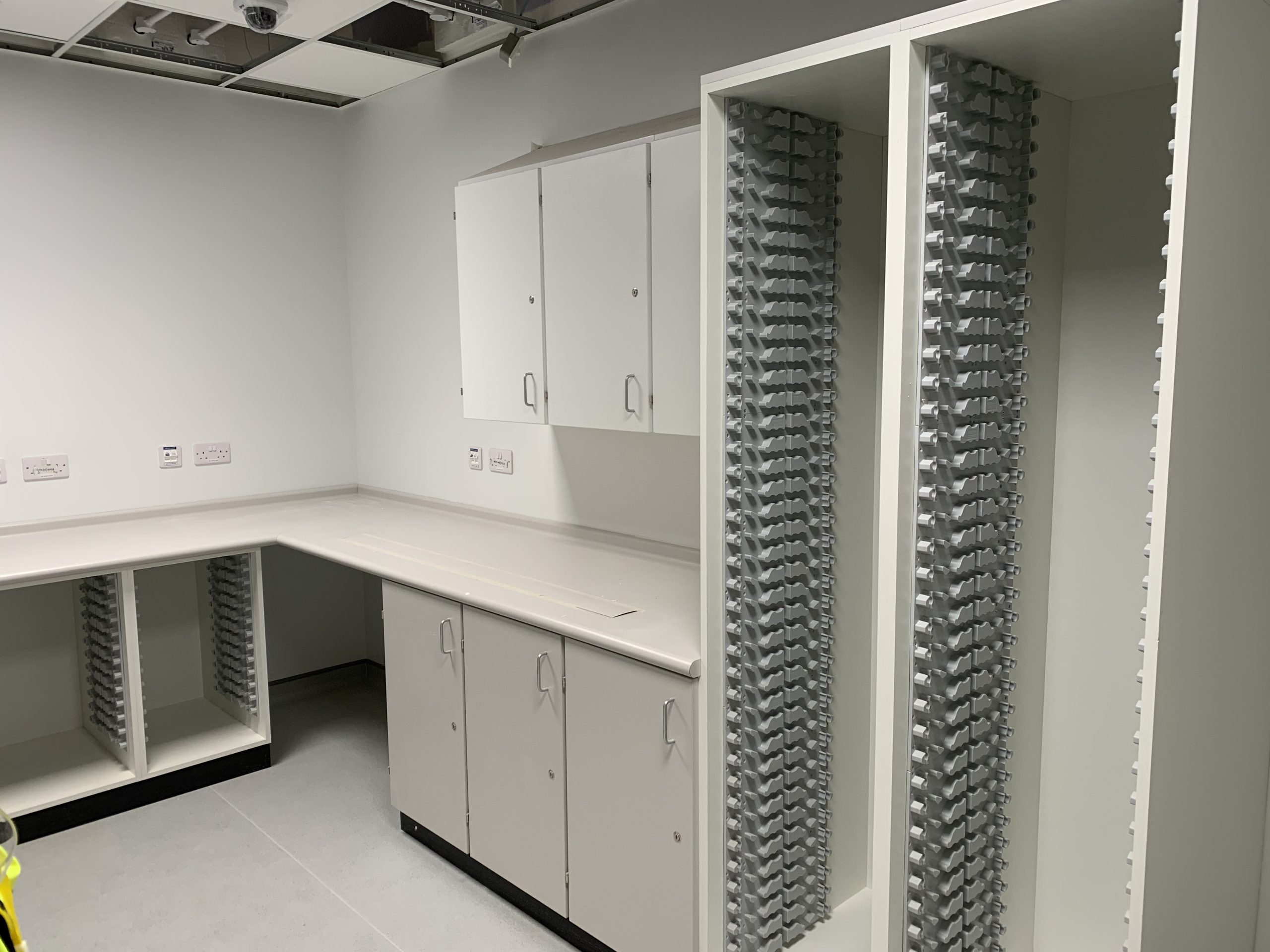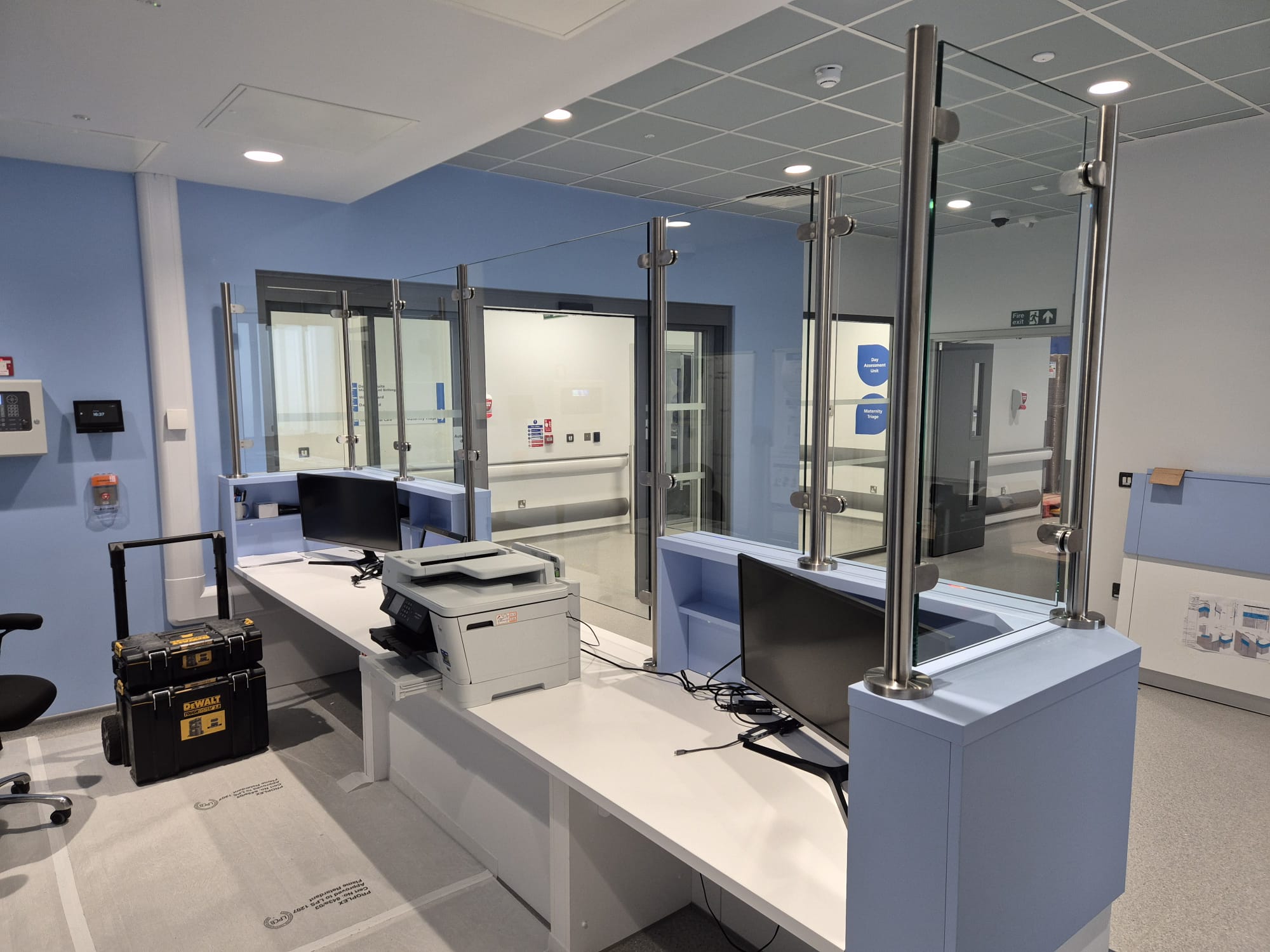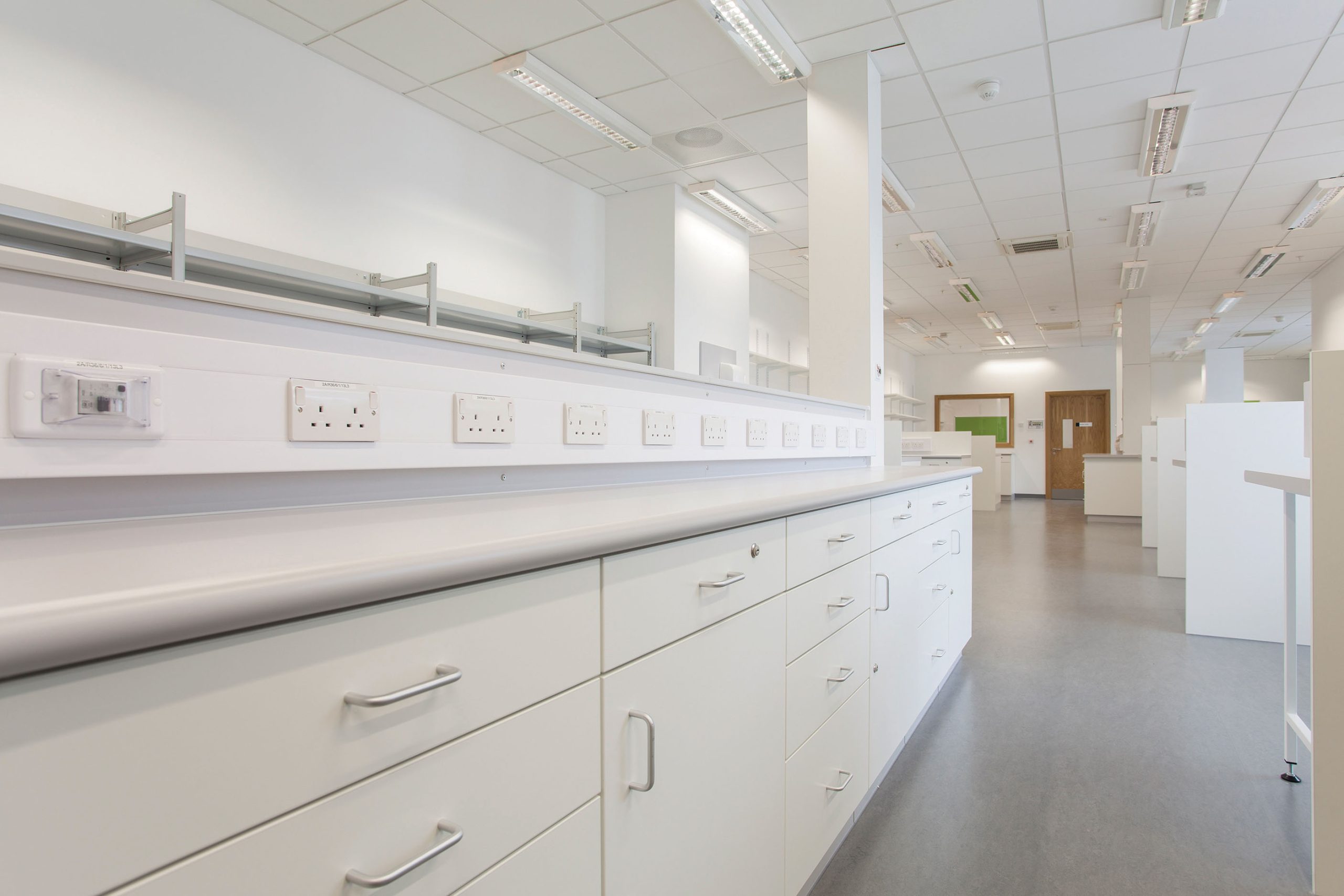The safety of NHS staff has become one of the most pressing challenges facing healthcare…

Efficient use of space for hospitals and healthcare centres
In the intricate world of healthcare, where every square metre counts, efficient space utilisation is not just a luxury, but a necessity. The demanding nature of healthcare operations calls for streamlined workflows and well-organised storage solutions to ensure optimal use of all available space, writes Tony Huggins, managing director of David Bailey Furniture.
Hospitals in the United Kingdom, in common with the rest of the world, face a dual challenge, to deliver high-quality patient care while operating within constrained spatial confines. According to a report by NHS Providers, the UK’s healthcare system is struggling with outdated infrastructure, insufficient space, and increasing patient demands. Efficient space utilisation is therefore central to overcoming these challenges, and this is where fitted furniture can have a remarkable impact.
In healthcare environments, the significance of well-organised storage cannot be overstated. Efficient storage systems not only ensure that essential medical supplies and equipment are readily accessible, but they also contribute to reducing clutter, enhancing cleanliness, and ultimately promoting patient safety.
Research published in the “Journal of Medical Systems” highlights the positive correlation between organised storage and improved patient care. Fitted furniture systems, with their ability to be customised to specific needs, offer tailored storage solutions that align with the demands of different hospital departments. From pharmacy storage to medical equipment compartments, fitted furniture optimises storage potential while maintaining an organised and easily navigable environment.
Fitted furniture is not only about storage – it’s about transforming workflows and enhancing overall operational efficiency. In the context of healthcare, streamlined workflows translate to quicker response times, reduced errors, and enhanced staff productivity.
A study by the National Centre for Biotechnology Information (NCBI) in America underscores the importance of well-designed workspaces in healthcare settings. Fitted furniture systems, which can be seamlessly integrated into various departments such as nursing stations, laboratories, and administrative areas, create efficient workspaces that facilitate smooth communication and collaboration among healthcare professionals.
The beauty of fitted furniture lies in its versatility. UK hospitals are multifaceted environments with distinct requirements for each department. What works for an operating room might not suit a patient waiting area. Fitted furniture solutions address this diversity by offering tailored designs that align with the specific needs of each hospital space.
The Royal College of Nursing emphasises the role of an adaptable environment in healthcare settings. Fitted furniture caters to this need by allowing hospitals to choose configurations, materials, and finishes that match their unique aesthetic and functional requirements.
David Bailey Furniture Systems is at the forefront of transforming healthcare spaces with efficient fitted furniture solutions. Our expertise lies in crafting designs that seamlessly merge functionality and aesthetics while optimising the use of available space.
One remarkable aspect of David Bailey’s offerings is modular furniture. Modular units can be combined and configured to fit the available space perfectly. This adaptability is especially crucial in healthcare, where rooms come in varying shapes and sizes. This approach aligns with the recommendations from the Royal Institute of British Architects (RIBA), which advocates for flexible design solutions to accommodate evolving healthcare needs.
Fitted furniture doesn’t just address the operational aspects of healthcare spaces – it also contributes to creating patient-centric environments. Research published in the “Health Environments Research & Design Journal” highlights the importance of patient-centred design in improving overall patient experiences and outcomes. David Bailey Furniture Systems recognises this significance and integrates patient-centric elements into their designs.
In a world increasingly conscious of environmental impact, sustainable practices have become a critical consideration. David Bailey Furniture Systems prioritises sustainable manufacturing practices, utilising materials that are both environmentally friendly and durable.
This is because the NHS is committed to sustainability in healthcare design. Fitted furniture systems that incorporate eco-friendly materials align with its vision of reducing carbon footprints while creating functional spaces.
So, we can demonstrate that efficient space utilisation is not a luxury but a necessity in UK hospitals grappling with spatial constraints and increasing healthcare demands. Fitted furniture systems from David Bailey Furniture Systems offer a comprehensive solution that goes beyond traditional storage methods.
As UK hospitals continue to evolve, embracing the potential of efficient space utilisation through fitted furniture, is an investment in enhanced patient care, improved staff efficiency, and a more organised healthcare environment.
That is why we like to think that we at David Bailey Furniture Systems stand as a leader in this transformation, helping to redefine the way hospitals perceive and use their valuable space.








